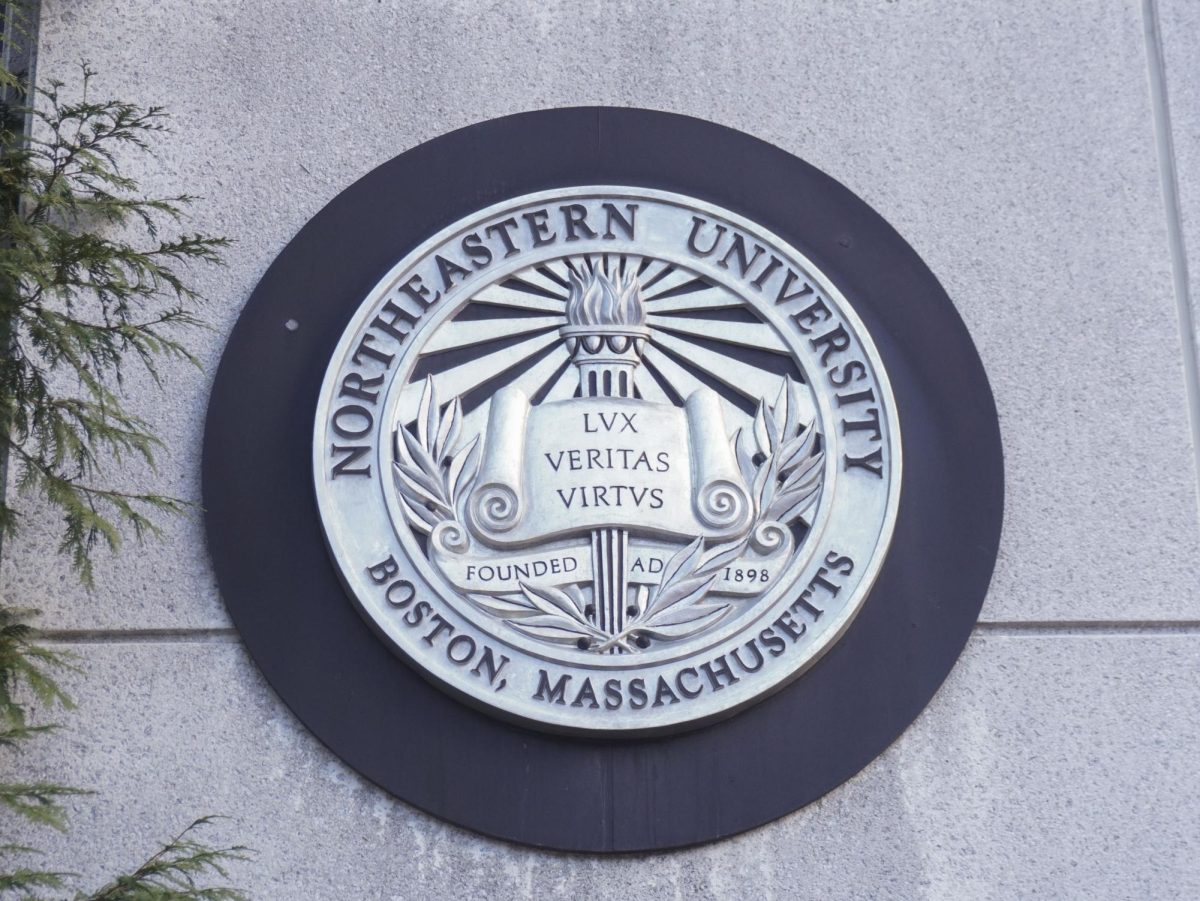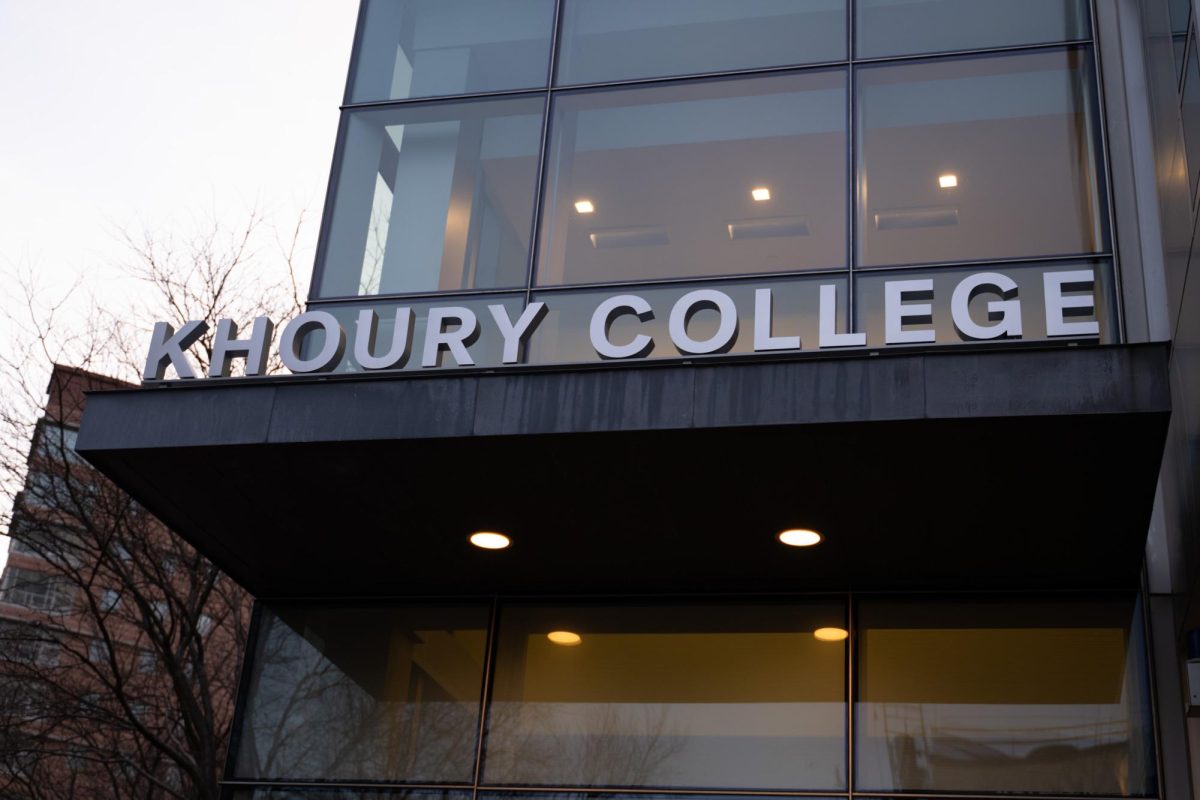I misspoke. I admit my faults, though it’s hard to do. I did make an error in judgment. In my first column this academic year, I blatantly denounced college students and our generation as politically apathetic individuals who take no part in politics or the democratic process, nor do they keep up to date with current events. My basic opinion led to me to be disgruntled and negative about my fellow peers. But I was proven wrong this week.
Not all students are politically apathetic; some still are, but the students I’ve met at our campus have proven that our generation will not sit quietly while designs are being made without our consent and without our participation. They have shown me that I can make a difference, quietly or publicly.
Feminists, democrats, socialists and members of Northeastern’s Campus Against War and Racism (NUCAWR) may have different political values, yet they are united in the antiwar movement, in educating us about this pending war and other major issues, and reminding us that our future is at stake. They are just a few examples of students who do not sit idly by as news happens. They remind us that our parents’ generation experienced war, governmental brutality and disruption in their daily lives. That generation should be our inspiration to get up and DO SOMETHING.
Though the war in Iraq has been the onset of the recent antiwar movement in Washington and other cities across the United States, according to Professor Winifred Breines, a sociology professor who teaches political movements, students have always been involved, quietly. Whether it’s issues such as environmental policy, abortion rights or hunger, students have allowed their voices to be heard, often taking initiative; however “it’s not a sustained movement and students are part of that problem,” she says.
However, a few students at NU are fighting that stereotype. They say, it’s our turn to be heard and this political activism won’t die down when issues with Iraq are resolved. The Bush administration has sparked a new sense of patriotism. It’s not just the war in Iraq that is on everyone’s minds. It’s also issues such as affirmative action, women’s reproductive rights, the war on terrorism, and the unstable economy, which have sparked discussion and debate.
“Patriotism in our eyes is taking an active participation. That’s what students are scared about; they need to know that if they’re not doing anything, they aren’t citizens. They aren’t taking part in democracy,” said Jared Mcbride, a junior history major who is a member of Northeastern’s Campus Against War and Racism.
Although our movement has not been as great as the movements of the 1960s or 1970s, Breines and Professor Suzanne Ogden, of political science, argue that these are different times. The civil rights movement, the women’s movement and a drawn-out stay in the Vietnam War contributed to society believing change could come. Young adults were certainly aware of current events because a draft was in place. Now, that threat isn’t felt today since we have a voluntary armed forces. Today’s media can also be blamed for the lack of knowledge about this war.
“The media is much more a mouth piece for the administration and government. You don’t see a lot of alternative information and stories,” said Breines.
That said, Matt Boucher, a middler majoring in history and elementary education, is a member of the socialist club which “give people an alternative viewpoint because the media and the government and the Bush administration always seem to talk in the same context and point of view.” NUCAWR aims to do the same through discussions, teach-ins and education.
“This war is a highly technologically advanced war that the media is not willing to explore of what is really going on”, says Breines.
A technologically advanced war means a technologically advanced movement. Eighty campuses across the country have used the Internet to organize a new campus anti-war network called CAN, which is coordinating protests, teach-ins and walkouts against war. When an event is organized, the days and times will be spread through each campus’s individual organization so that the message is heard and completed with one voice. The socialist organization is also organizing buses for an antiwar protest in New York City on Feb. 15 in Central Park. “The power of protest in pretty immense,” said Boucher.
Debbie Roif, a senior communications major, and president of Northeastern’s Feminist Organization, said her group’s goal is to provoke thought, discourse and community and bring awareness to not only national issues but concerns of the campus. In the quest for political activism, the feminist organization is focused on women’s issues from concerns about women in sports, building a rape crisis center and bridging the gap between men in and women in the work force.
In small ways these groups and others not mentioned have sparked a small but important movement at our campus and in history. It may not look like much on the outside, but from what I have seen thus far, these students are energized, are enthusiastic and concerned about more than just themselves.
“I hope this peak in political interest doesn’t go away after the Iraq issue goes away,” said David White, vice president of the Northeastern Democrats and a senior political science major.
I hope so too, David. I hate to be wrong, again.
– Comments for Afsha Bawany may be sent to [email protected].









